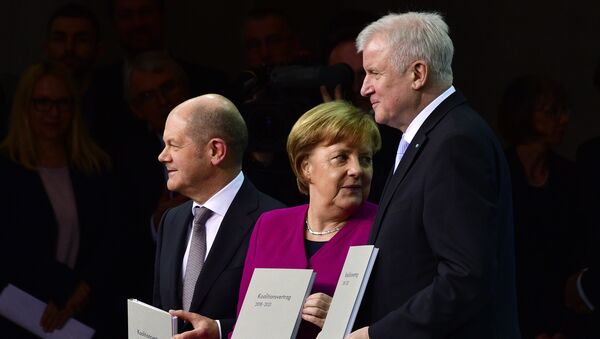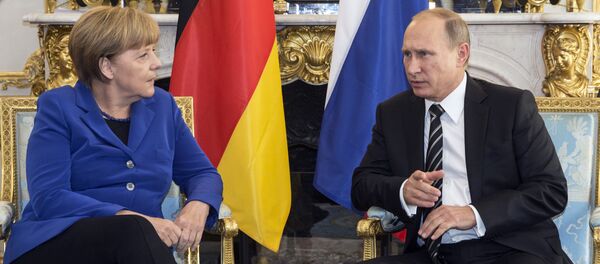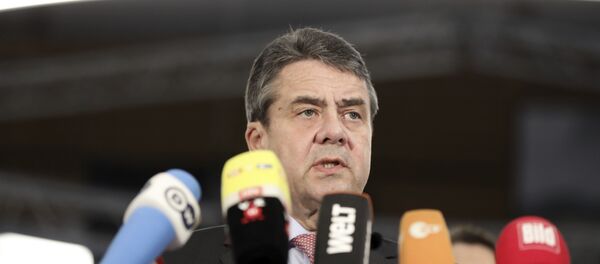On Wednesday, the German parliament will elect Merkel as the next chancellor, after that country's President Frank-Walter Steinmeier will have to appoint ministers of the government proposed by Merkel.
Social Economy, EU Affairs
At the morning briefing, all three parties' leaders said they expected the government to work for a full legislative period — four years.
Seehofer said that the new government represented the "middle class interests" and was going to develop a "social economy."
Scholz noted that the EU agenda would be key to the future government. In the near future he will travel with Merkel to Paris to discuss the reform of the eurozone. Scholz stressed that the welfare of Germany played a fundamental role for the EU reform and called for preservation of jobs in the country.
Coalition Agreement
The coalition agreement, signed on Monday, contains 177 pages. The preamble states that Germany "is experiencing new political times and facing numerous challenges, international and national ones." According to the text, to guarantee the "long-term peace, security and prosperity is possible only with the new rise of the European Union." The new government promises to improve the welfare of the German citizens, strengthen the security, stability and cohesion of society, including in the eastern part of the country.
The document states that in cooperation with Russia it is possible to guarantee peace in Europe, integrity of national borders and sovereignty of all states on the basis of OSCE principles. The three German parties emphasized the "great potential for economic exchange and strong interest in cooperation in the field of civil society" in relations with Russia. Lifting European sanctions imposed on Russia in connection with the situation around Crimea and the conflict in the eastern part of Ukraine is envisaged in exchange for the implementation of the Minsk agreements.
READ MORE: Fatherland Forever? Merkel Not Impressed With Gender-Neutral Anthem Initiative
The new German government stands for the full implementation of the Iranian nuclear deal, which is attacked by US President Donald Trump. The coalition agreement also expresses support for the sovereignty of Syria and Iraq.
Berlin also intends to pursue a policy aimed at massive disarmament.
Regarding relations with Turkey, the document says that opening new chapters in the negotiations on its accession to the European Union, as well as visa liberalization and expansion of the customs union can occur only after Ankara fulfills the necessary criteria.
Opposition's Dissatisfaction
Earlier on Monday, several briefings were held in Berlin, in which leaders of opposition parliamentary parties took part. They expressed their dissatisfaction with the text of the coalition agreement, which defines the main tasks for the government for the next four years.
"There is no deal in the agreement on introducing quotas for the reception of refugees, the lawlessness continues," Alexander Gauland, head of the parliamentary group of the Eurosceptic Alternative for Germany (AfD) party, said, adding that Merkel's policy on the issue in the past years "led to the split of the German society."
The head of the Greens Annalena Baerbock stated that the issues of combating climate change were also "missed" in the text of the agreement.
Germany held parliamentary elections on September 24. The CDU and CSU won the election with 33 percent of the vote, or 246 seats in the parliament, however, they failed to secure an absolute majority. The SPD came second with 20.5 percent of the vote and 153 seats.
Merkel initially planned to form a coalition with the Greens and the FDP, but the preliminary talks with them were unsuccessful.







